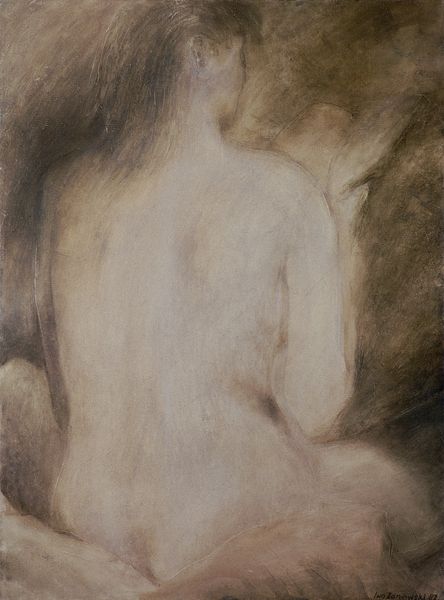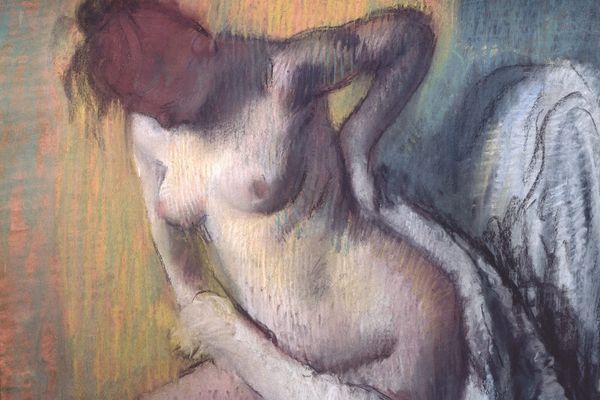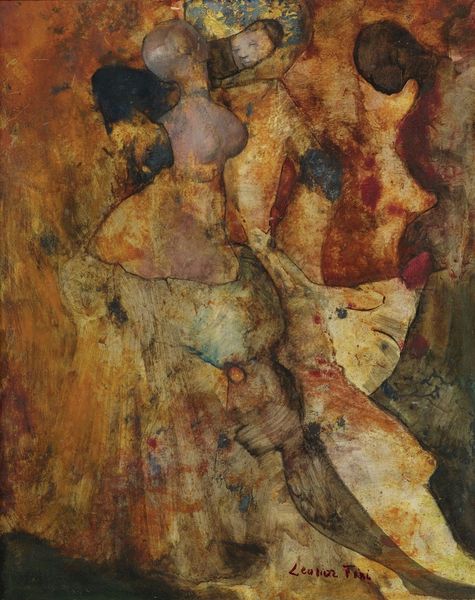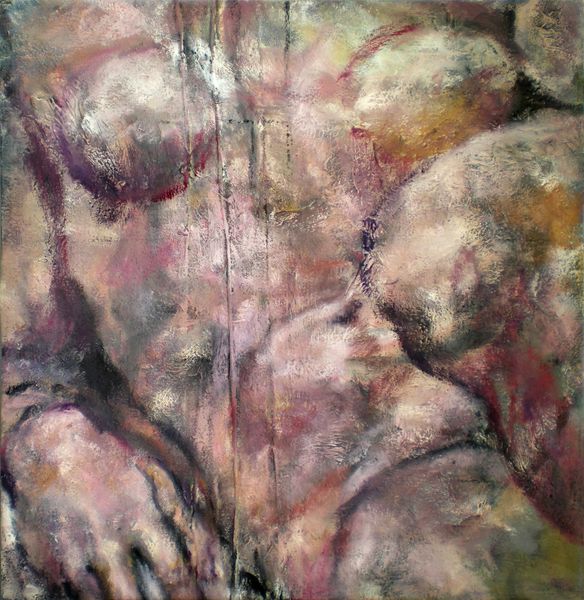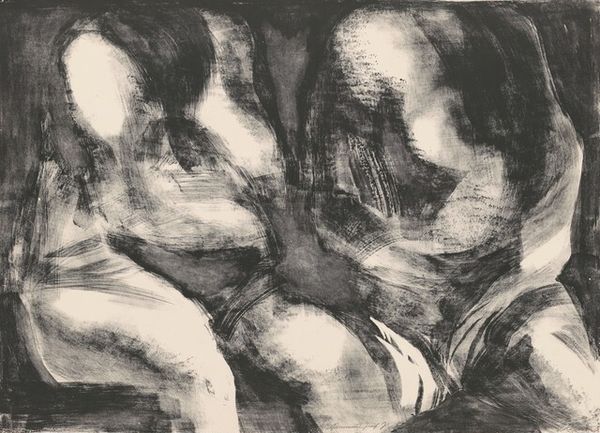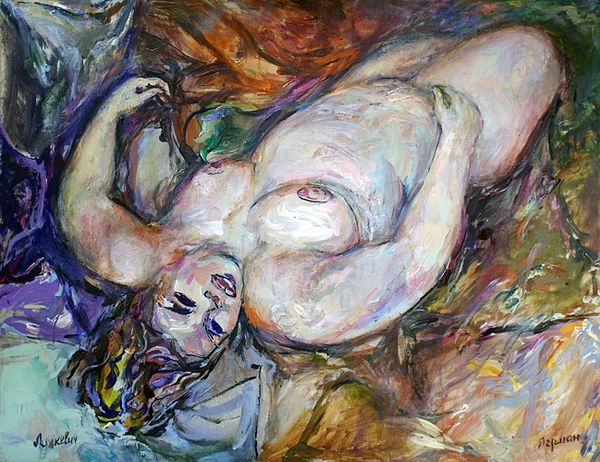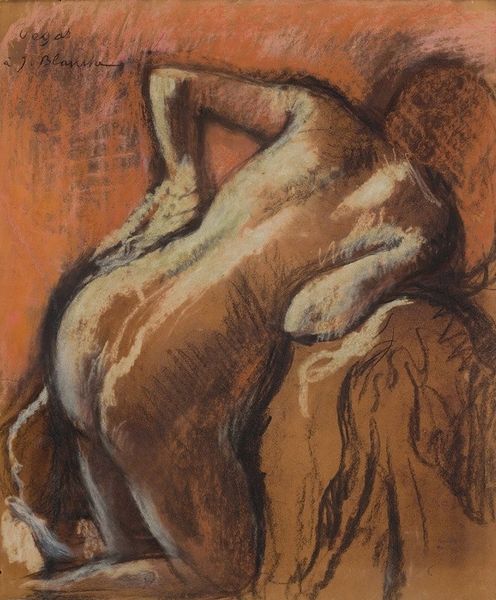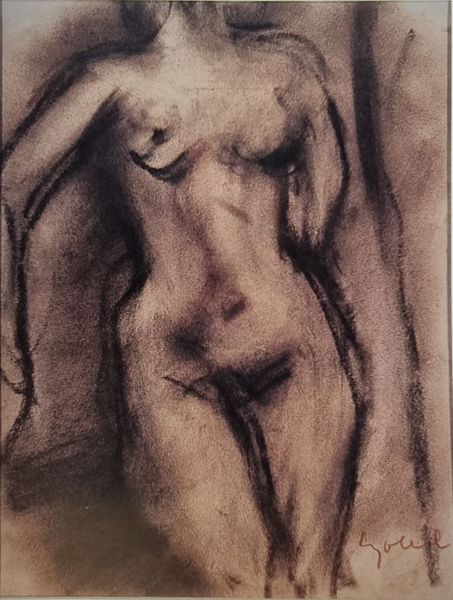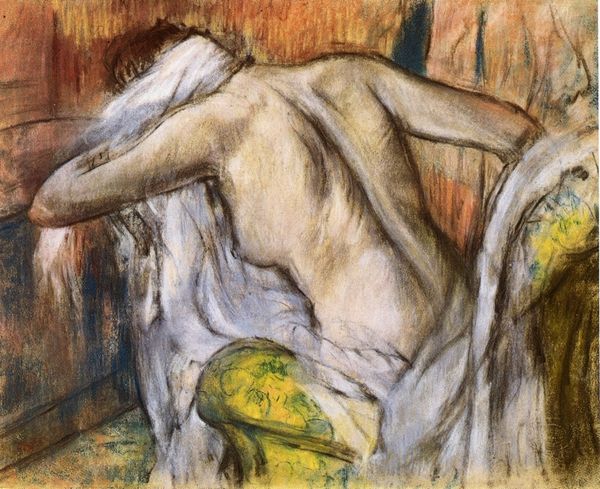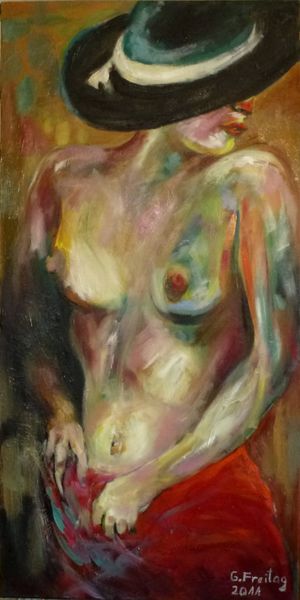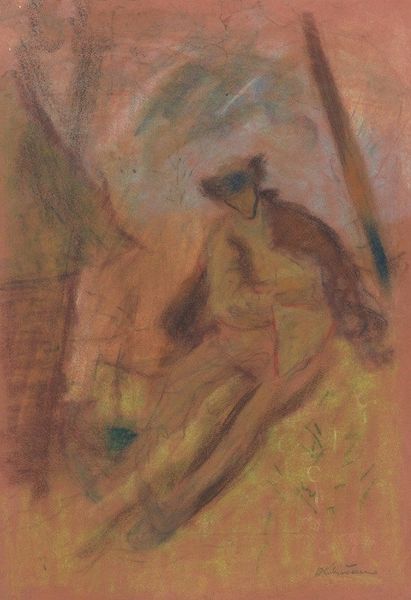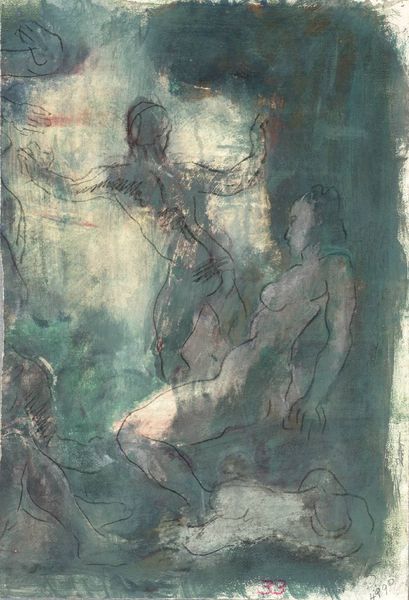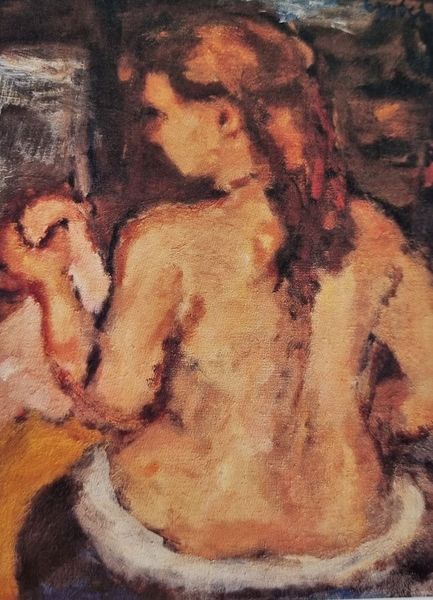
drawing, charcoal, pastel
drawing
figurative
impressionism
charcoal drawing
figuration
oil painting
intimism
charcoal
pastel
northern-renaissance
nude
watercolor
Copyright: Public Domain: Artvee
Edgar Degas made this intimate pastel drawing of a woman drying herself sometime in the late 19th century. Degas has used layers of dry pastel to build up tone and volume, creating a sense of soft, diffused light across the woman's form. These pastels, made from ground pigment and a binder, are a departure from the slickness of oil paint. Instead, they are powdery, immediate, and require a direct touch. The medium also allowed Degas to work quickly, capturing a fleeting moment of everyday life. There is also the question of the artist’s labor. Pastel does not allow for extended rework, as with oils; the image must emerge rapidly, through instinct and mastery. Although this is undoubtedly a work of fine art, it is infused with a sensibility that also values speed, efficiency, and the aesthetics of informal, even unfinished form. So, next time you look at a pastel, consider its status—is it a study, a sketch, or a finished work of art? And does it matter?
Comments
No comments
Be the first to comment and join the conversation on the ultimate creative platform.
